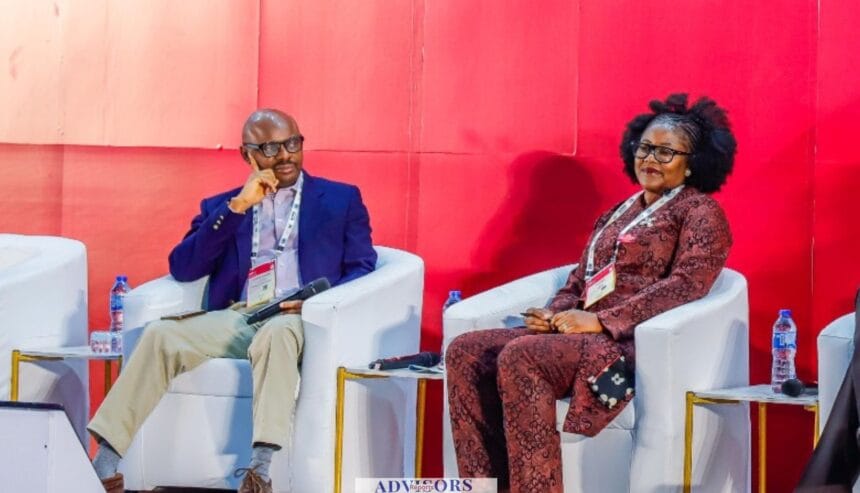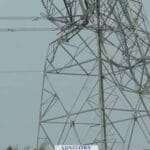… calls for benchmarking NESI regulations, policies with timelines, sanctions to players unable to meet these targets
“In some cases, instead of delivering pure gas, suppliers mix it with condensate—either knowingly or unknowingly”- Ogaji
Oredola Adeola
Dr. Joy Ogaji, Chief Executive Officer of the Association of Power Generation Companies (APGC), has raised concerns over the severe gas pressure challenges hampering major electricity Generation Companies (GenCos) in Nigeria.
Ogaji emphasized that facilities such as Egbin, Geregu I & II, Omotosho, Olorunsogo, and other National Integrated Power Projects (NIPPs) are grappling with inadequate gas supply due to low gas pressure.
Ogaji made this statement during a panel session themed *”Policy and Regulatory Framework for LNG, LPG, CNG, and Gas to Power”* at the recently concluded 2024 Nigeria Energy Conference held in Lagos.
She highlighted that these GenCos, which collectively can generate about 4,000 MW of electricity, are unable to operate optimally because they cannot secure adequate gas supplies.
Ogaji also noted that to address the issue, the Nigerian Gas Infrastructure Company (NGIC) – formerly known as the Nigerian Gas Company (NGC) – has to install chromatographic equipment to enhance gas supply pressure.
“Stakeholders in the gas-to-power value chain are well aware of the solution, but bureaucracy continues to be a major obstacle.
“Unfortunately, when government processes are delayed, it is the operators that suffer the most,” Ogaji remarked.
The APGC CEO further urged all relevant authorities to expedite interventions to ensure a steady gas supply, adding that resolving those challenges is crucial to improving electricity generation and stabilizing the national grid.
Speaking further, Dr. Ogaji explained that beyond limited gas supply, the issue of gas adulteration is becoming a growing concern.
“The quantity of gas supplied to GenCos is not only insufficient but also often measured, which creates room for potential manipulation by gas suppliers.
“In some cases, instead of delivering pure gas, suppliers mix it with condensate—either deliberately or unintentionally.
“This condensate, which is unnecessary for GenCos, causes damage to their equipment,” she stated.
She added that the harmful impact of condensate has forced GenCos to install chromatographic tools -such as Condensate Separators or Gas-Liquid Separators- to filter the gas they receive.
“The Nigerian Gas Infrastructure Company (NGIC), which transports gas to the GenCos, must work closely with the Nigerian Midstream and Downstream Petroleum Regulatory Authority (NMDPRA) to ensure that gas is properly separated from condensates.
“However, gas suppliers often bypass these separation processes to avoid the associated costs, which are unfairly passed on to the GenCos,” Ogaji emphasized.
Dr. Ogaji highlighted that government policies are critical to the development and sustainability of the Nigerian Electricity Supply Industry (NESI).
“For the industry to grow, policies must be designed to foster investment, offering a clear pathway for investors to recover their funds. Frequent and inconsistent changes to policies discourage investment,” she noted.
She further explained that investors require stability to make long-term plans, and sudden alterations to existing agreements could disrupt power generation.
“GenCos operates under approximately 15 contractual agreements to generate electricity. If one of these agreements is breached or altered, it triggers a ripple effect across other contracts, jeopardizing the entire operation.
“Regulators must understand that any policy adjustment should be carefully considered to avoid unintended consequences,” Ogaji concluded.
She also raised concerns over infrastructure challenges, policy inefficiencies, and Nigeria’s lagging progress in the electricity sector compared to other African countries.
She stressed the urgent need for robust infrastructure policies that align with the interests of financiers to ensure sustainable power generation.
“Infrastructure challenges affect every segment of the power value chain—GenCos, DisCos, and transmission companies.
“We need policies that promote the development of critical infrastructure while also ensuring financiers are incentivized to provide the capital required by the GenCos,” Ogaji said.
She cited the protracted delay of the Oben-Obiafu-Obrikom (OB3) gas pipeline project as a reflection of poor policy execution.
“OB3 was initiated in 2014, yet here we are, still discussing plans to deliver it by the fourth quarter of 2024 under the current administration. This delay speaks to the deeper issues we must address within the power sector,” Ogaji remarked.
Ogaji emphasized that policies governing the Nigerian Electricity Supply Industry (NESI) must be benchmarked with sector-wide timelines, and those unable to meet these targets should face strict enforcement and sanctions.
“Policy pronouncements without accountability will not move NESI forward. We need to establish enforceable default clauses to ensure compliance across the value chain,” she stated.
Drawing comparisons with other African nations, Ogaji lamented Nigeria’s sluggish progress.
“Nigeria generated its first electricity in Lagos in 1896. Now, 127 years later, we are still struggling to produce 5,000MW to serve a population of over 200 million.
“Meanwhile, countries like Senegal and Kenya, which only recently began developing their power sectors, are now outperforming us,” she observed.
Ogaji warned that without decisive action, the country risks falling further behind.
“Nigeria must think deeply and act swiftly, or we risk being plunged into deeper darkness,” she concluded.




